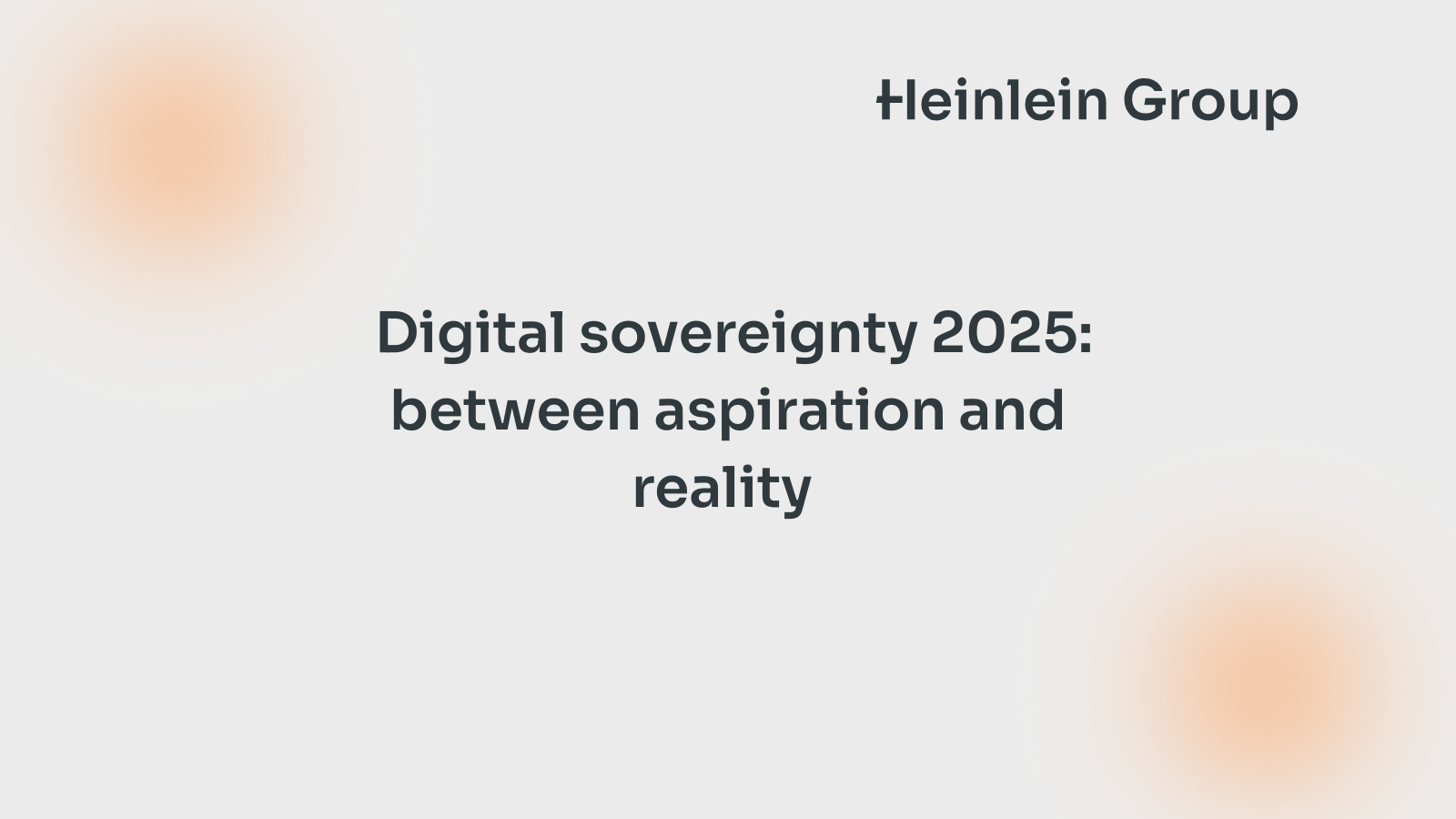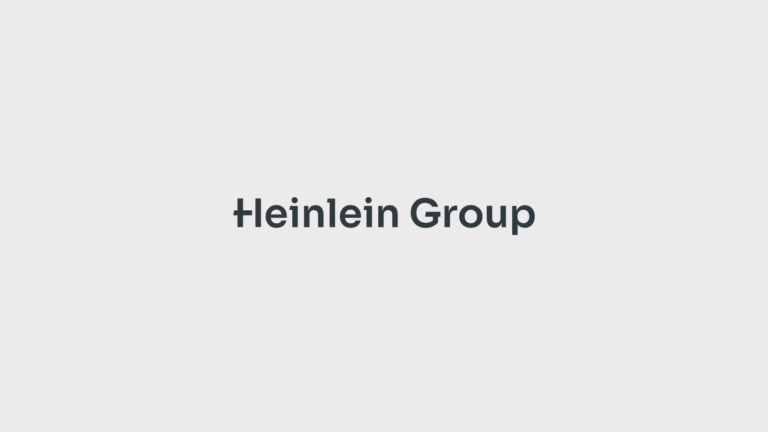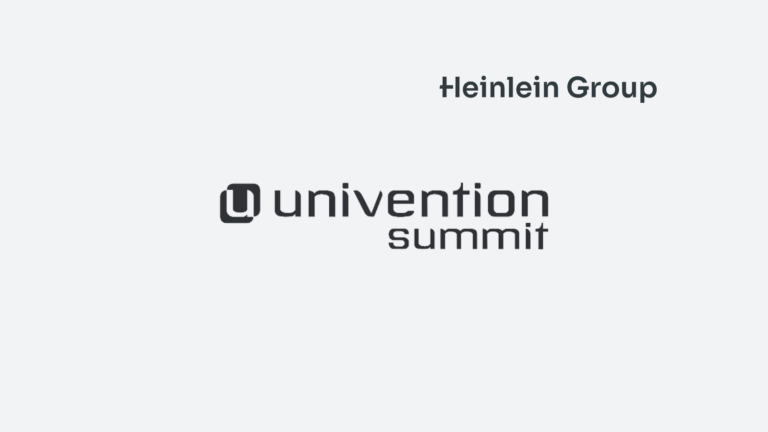
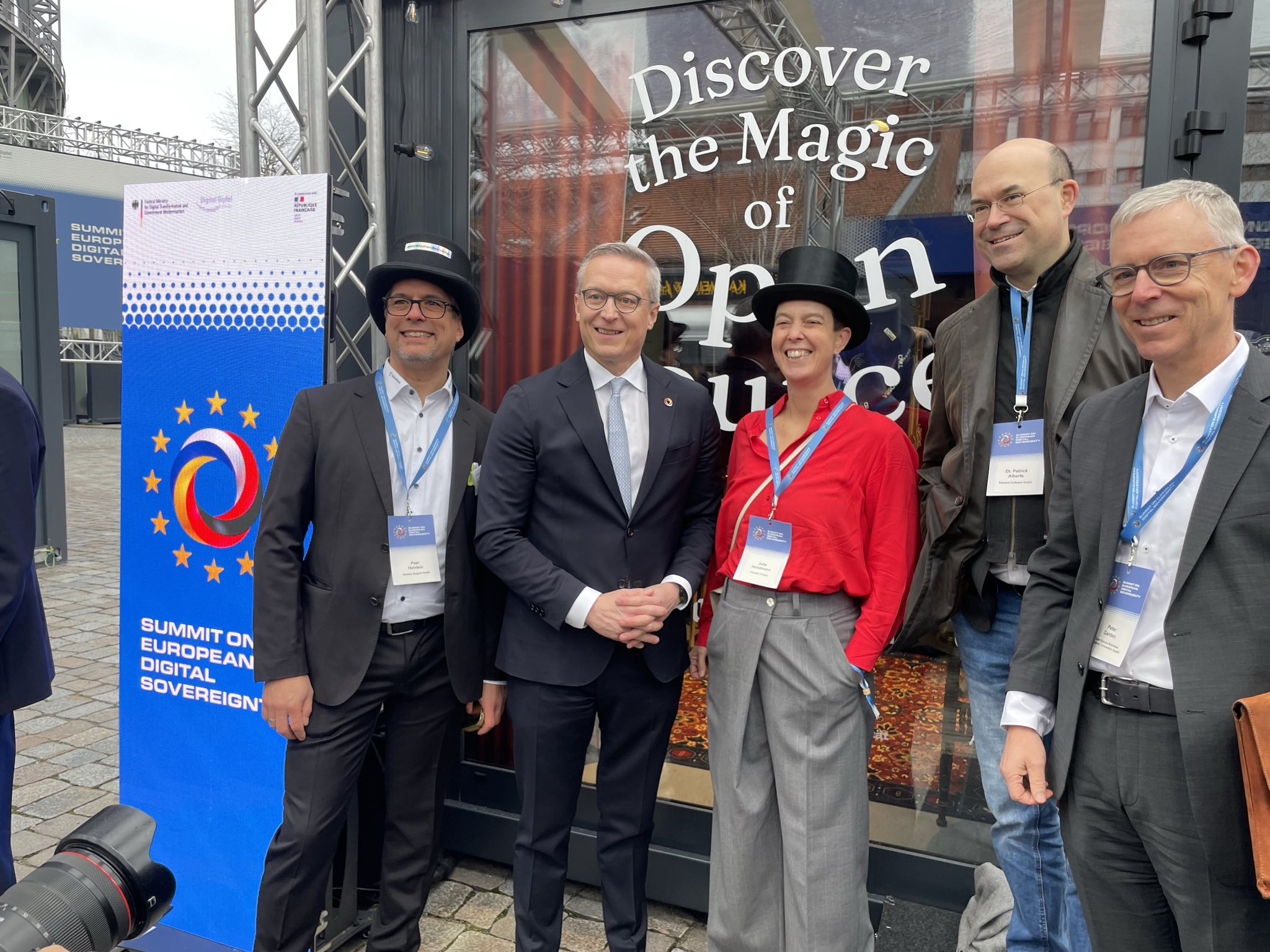
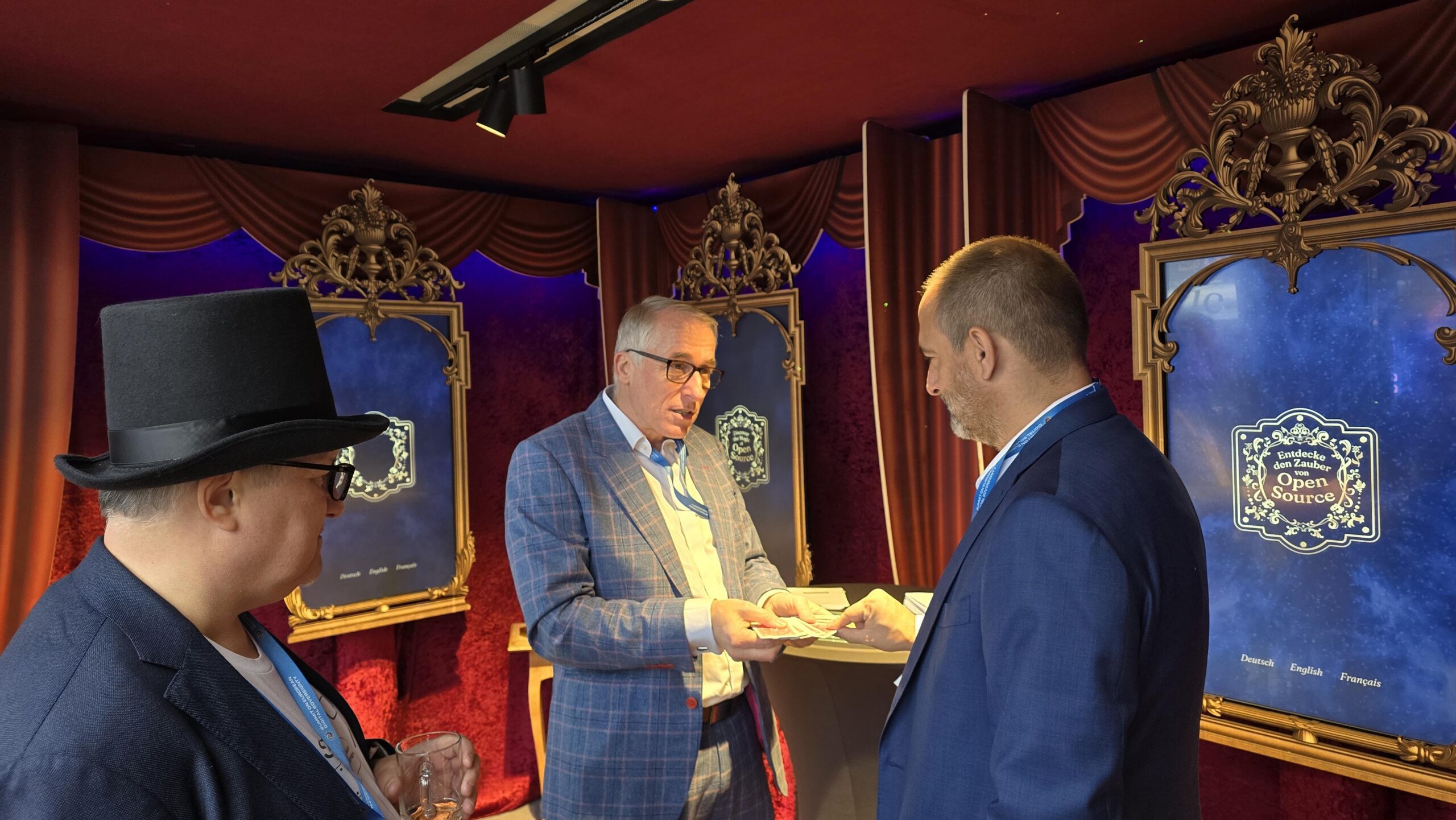
The Summit on European Digital Sovereignty on November 18, 2025 showed with unusual clarity how central digital sovereignty is for Europe's future. The debates made it clear that digital independence is not a purely technical issue, but a social one and therefore a "must-have". Transparent structures, comprehensible technology, political creative power and the will to shape the future are basic prerequisites for achieving digital independence.
Exchange at the pavilion „The Magic of Open Source“
The Heinlein Group was instrumental in organizing the pavilion „The Magic of Open Source“ on behalf of the European Open Source Association APELL (Europe) and the Open Source Business Alliance (OSBA) in order to promote the social discussion on the necessity of digital sovereignty. In addition to Heinlein Group CEOs Peer Heinlein and Jutta Horstmann, representatives from APELL, OSBA, CNLL (France) and the participating companies B1 Systems, Element, Univention, SUSE and the Center for Digital Sovereignty (ZenDiS) were on hand to answer questions.
One of the many highlights was the visit by Federal Minister Karsten Wildberger (Federal Ministry for Digital and State Modernization). It was a personal matter for him to visit the pavilion. During the exchange, he reaffirmed his commitment to open source and to strengthening the German and European open source industry and announced that he would continue the dialog in the near future. As a small farewell gift, he received the golden box „The Magic of Open Source“ - with a compact booklet on the importance of open source for the digital sovereignty and freedom of our society. The box also contained a little magic trick that the minister could use to take the magic of open source home with him.
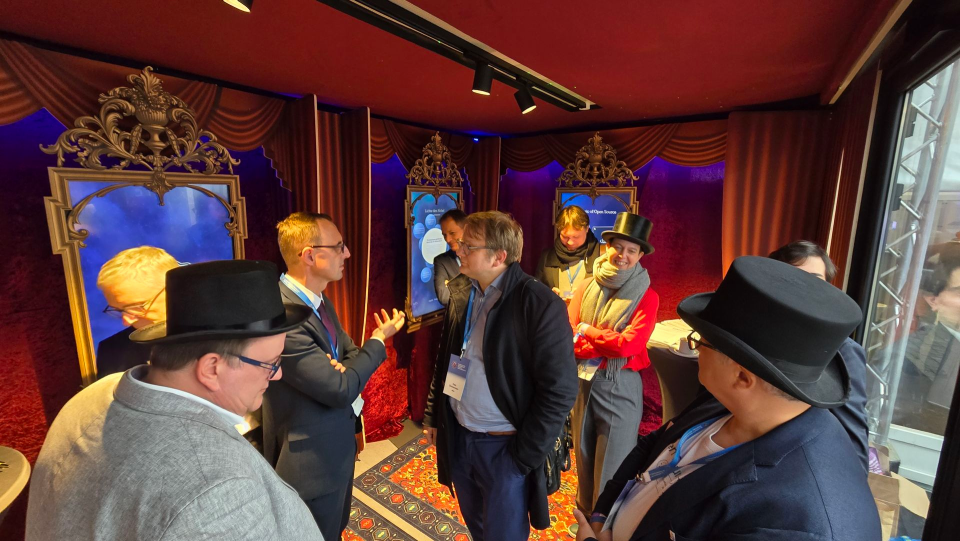
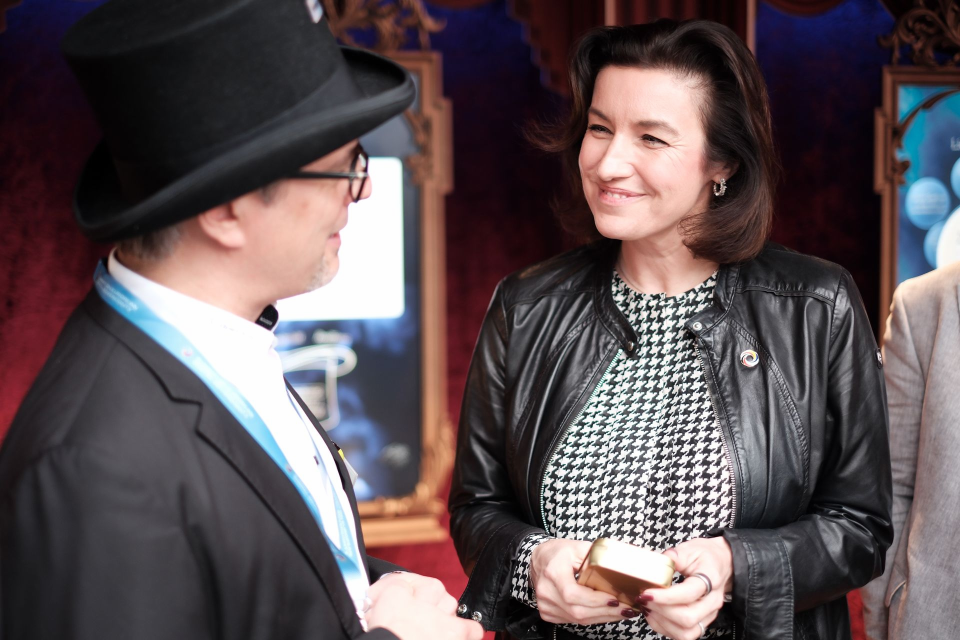
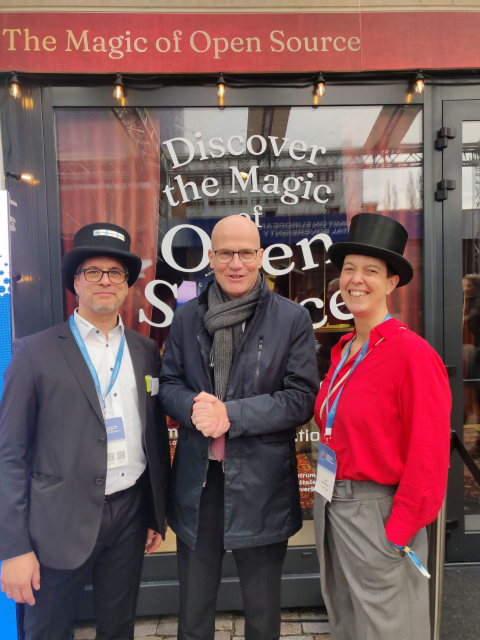
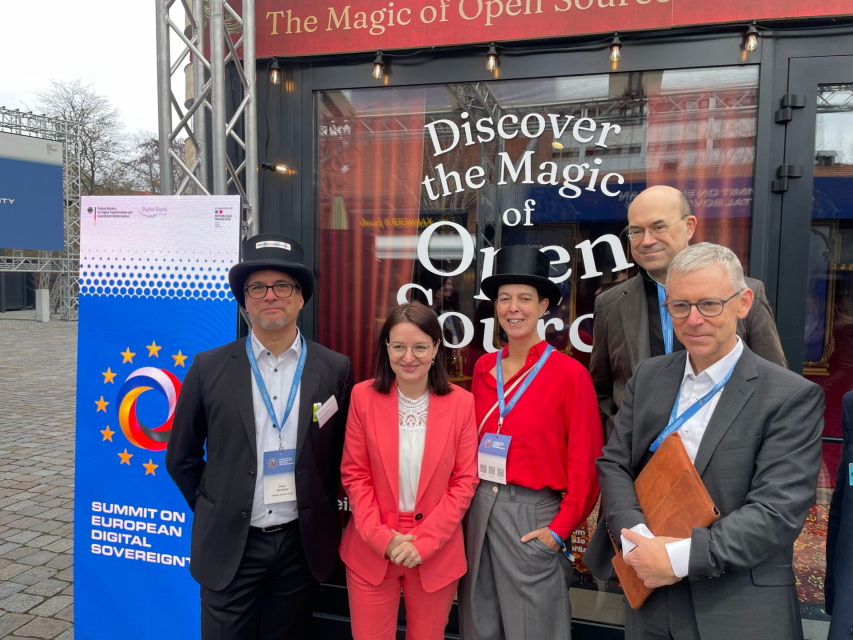
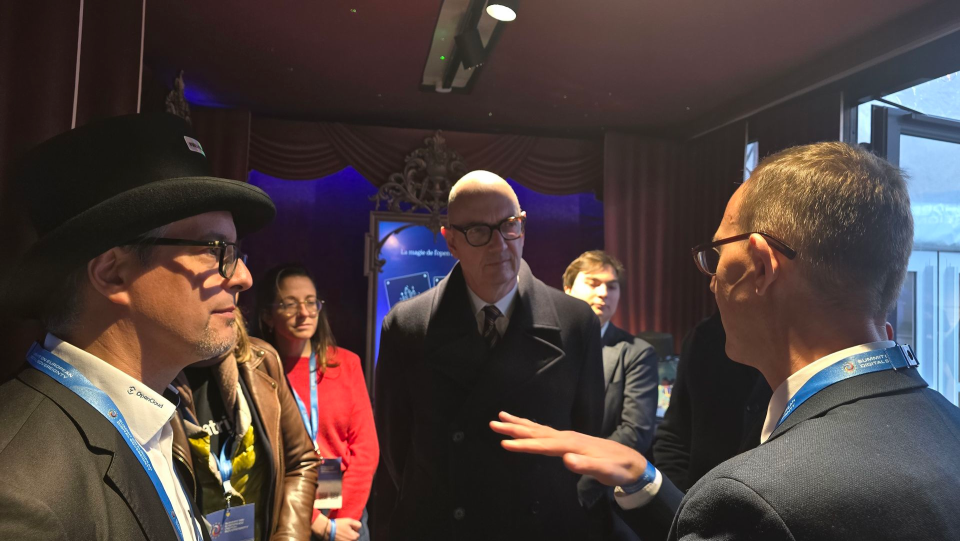
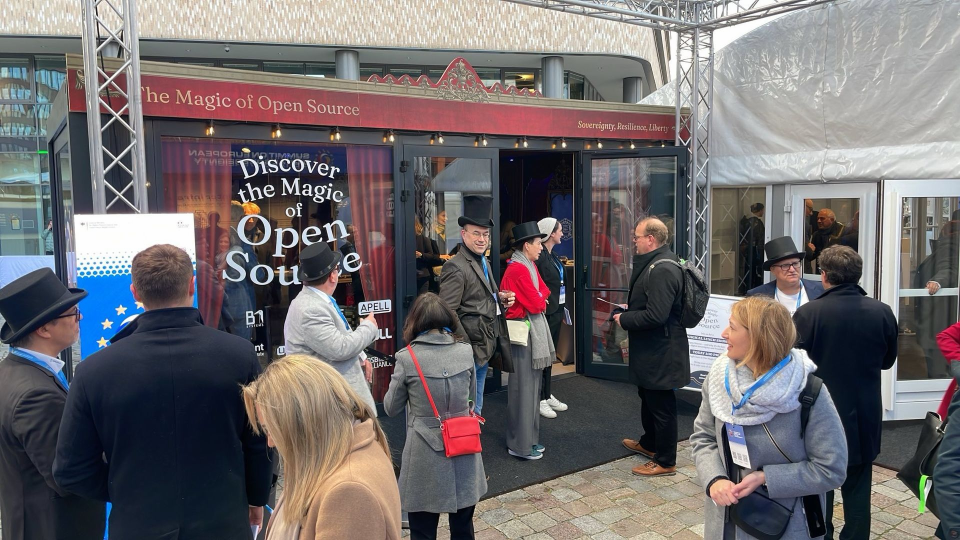
Clear discussion instead of sovereignty-washing
One of the strongest signals from the summit was that the discussions on site were open, direct and free of cosmetic commitments. Numerous delegations explicitly addressed the risks of digital dependencies - from democratic effects to structural vulnerabilities in administration and the economy. The demand for serious European alternatives was clearly formulated. As a result, digital sovereignty has noticeably moved from the realm of political rhetoric to the concrete agenda of European decision-makers.
Open source moves strategically to the center
Another learning: Open source solutions are increasingly seen as a strategic component. Their role has long since extended beyond technical aspects. They enable transparency, verifiability and genuine digital independence.
The summit showed that the open source industry is on the way to being perceived as an equal partner - even if this process is not yet complete everywhere. The strong international interest and the many high-ranking visitors to the pavilion „The Magic of Open Source“ impressively underlined this development.
European digital sovereignty can only succeed together
It also became clear that the challenges cannot be solved in isolation. The path to greater digital sovereignty lies through joint political initiatives, harmonized technical standards and a coordinated approach within the European open source ecosystem. If we join forces, we can exert influence, provide orientation and enable genuine independence. The strength lies in joint action.
Many discussions resulted in concrete agreements to continue the exchange that had begun in the near future. A broad consensus was noticeable: open source plays a central role on the path to Europe's digital sovereignty.
Interim conclusion: Europe can be sovereign - if consistency follows
For many participants, the summit was not a conclusion, but the beginning of a necessary, honest debate about Europe's digital future. The three key learnings - clarity, open source as a strategic factor and European cooperation - form a strong starting point for this.
They show that Digital sovereignty is achievable in Europe. The prerequisite: consistent action and a common understanding of open, verifiable and independent digital structures.
